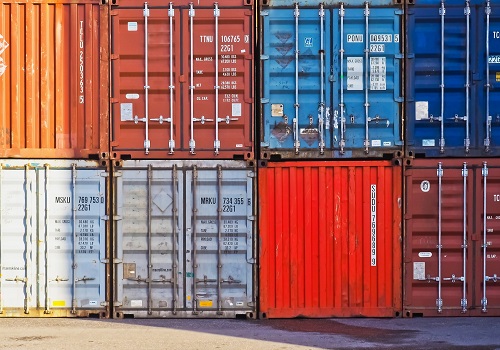Explainer-COP15: Why the world needs a new deal to protect nature

Follow us Now on Telegram ! Get daily 10 - 12 important updates on Business, Finance and Investment. Join our Telegram Channel
Hard on the heels of this month's fractious COP27 climate talks in Egypt, exhausted environmentalists are shifting their attention to another upcoming U.N. green summit, known as COP15.
At the Dec. 7-19 gathering in Montreal, about 195 countries will be tasked with finalising a new global biodiversity deal to halt damage to plants, animals and ecosystems - similar to the 2015 Paris Agreement to tackle climate change.
Hit by pandemic delays and moved from China due to COVID-19 restrictions, negotiations on the nature protection pact took place in March and June, but observers have been frustrated by their slow progress.
Boosting conservation and management of natural areas, such as parks, oceans, forests and wildernesses, is seen as crucial to safeguarding the ecosystems on which humans depend and to limiting global warming to internationally agreed targets.
Here's what to expect from COP15 - the 15th conference of parties to the U.N. Convention on Biological Diversity (CBD) - and what it aims to achieve:
WHAT IS THE CONVENTION ON BIOLOGICAL DIVERSITY?
Signed at the Rio Earth Summit in 1992 and later ratified by about 195 countries - not including the United States - the U.N. convention is designed to safeguard plant and animal species, and ensure natural resources are used in sustainable ways.
It also seeks "fair and equitable sharing" of the benefits from natural genetic material, used in everything from medicines to new crop varieties.
That means ensuring indigenous people and countries that are home to biological riches gain from their exploitation.
"COP15 is absolutely vital to reversing the nature crisis we're witnessing," said Margaret Kuhlow, finance lead at green group WWF International.
"This is the moment we've all been waiting for – for world leaders to finally come together and agree on the next decade of conservation targets and take actions to reverse biodiversity loss to protect and preserve our life on Earth," she added.
China holds the COP15 presidency, although the summit will take place in Montreal, the seat of the CBD secretariat, as Beijing continues to grapple with COVID-19.
Canadian Prime Minister Justin Trudeau will attend COP15, despite China's plan not to invite heads of state - a decision criticised by green groups. Chinese President Xi Jinping is not expected to go.
WHY IS IMPROVING NATURE PROTECTION SO IMPORTANT?
People depend on nature, from oceans to wildernesses, to supply them with clean air and water - and to regulate rainfall that is vital for growing food crops. When ecosystems are harmed, their basic life support services can falter, scientists say.
And because plants absorb planet-heating carbon dioxide to grow, strengthening conservation is widely seen as one of the cheapest and most effective ways to slow climate change.
But forests and other ecosystems are still being destroyed, often to expand agriculture and production of commodities like palm oil, soybeans and beef, to feed a growing world population.
"Human activities are causing the largest loss of life on Earth since the extinction of dinosaurs," said Toerris Jaeger, head of the Rainforest Foundation Norway.
"Our behaviour and the way we produce and consume are putting at least 1 million species at risk of extinction according to science, more than ever before in human history."
WHAT IS COP15 AIMING TO ACHIEVE?
The summit hopes to set both long-term nature-protection goals for mid-century, as well as shorter-term targets for 2030, and to push for those to be enshrined in national policies.
That mostly did not happen with previous global targets to slash biodiversity loss, set in 2002 and 2010, which were largely missed. They also suffered from a lack of finance.
Global annual spending to protect and restore nature on land needs to triple this decade to about $350 billion by 2030, a U.N. report said last year.
The need for more money to help developing nations meet the goals of any new nature deal has been a sticking point during the talks, although China launched a new fund for that purpose.
Other COP15 focus areas include recognition of the rights and leadership of indigenous peoples and local communities in safeguarding biodiversity, and phasing down or reallocating subsidies that are harmful to nature.
There has been wide support for a central pillar of the planned nature pact: a goal to conserve at least 30% of the planet's land and oceans by 2030, known as "30x30".
It has now gained the backing of at least 110 nations, a big boost from 70 a year ago, leaders said at the COP27 climate summit.
WHICH COUNTRIES ARE LEADING THE PUSH FOR A NEW NATURE PACT?
Countries calling for more ambitious nature protection from COP15 include Canada, European Union states, Costa Rica, Colombia and Britain, according to conservationists.
Some officials have called for stronger political leadership from China to ensure a successful outcome.
The United States never ratified the original CBD treaty and so does not play a formal role in negotiations, although it will send a delegation to COP15 and recently appointed Monica Medina as special envoy for biodiversity and water resources.
In addition, President Joe Biden has pledged to protect at least 30% of U.S. land and coastal waters by 2030, as part of the broader international campaign for 30x30.
Many developing countries, however, have yet to back the goal, hoping to extract more money from richer nations, which rely on the commodities poorer states supply, observers say.
And some political leaders are still betting on exploitation of their countries' natural resources to lift people out of poverty - especially after the COVID-19 pandemic.
"The largest risks are distracted global leaders, some outright opponents of ambitious action on biodiversity, and the failure of wealthy nations to provide adequate financing to implement an agreement," said Brian O'Donnell, director of the U.S.-based Campaign for Nature.
"Several wars and regional conflicts, energy price spikes, inflation and budget challenges have drawn attention and leadership away from nature," he added.
CAN CLIMATE AND NATURE ACTION WORK HAND IN HAND?
How countries monitor, report and ramp up their promises of action will be key to the success of a new biodiversity deal, said Georgina Chandler, an international policy expert at the UK-based Royal Society for the Protection of Birds.
"We have the opportunity to create a framework with more measurability, accountability and commitment to delivery," she said, adding there was concern those aspects may not be secured as part of an agreement at COP15.
Protecting and restoring ecosystems is also seen as essential to meeting the Paris Agreement goals, while the impacts of climate change are having devastating impacts on nature around the planet, said Chandler.
"There are shared climate and biodiversity problems with shared solutions," she said, pointing to planet-heating emissions from deforestation and farming activities, which also drive nature loss.
Biodiversity experts expressed disappointment, however, that the "implementation plan" agreed at the recent COP27 climate summit simply repeated the language on nature used in the COP26 Glasgow pact last year and made no mention of COP15.
Susan Lieberman, vice president of international policy at the New York-based Wildlife Conservation Society, emphasised that climate and nature are "intertwined".
The climate crisis cannot be solved without protecting biodiversity - particularly ecosystems such as forests, she said, while nature cannot be kept safe without limiting emissions and combating climate change.
"The very future of life on Earth hangs in the balance - this (COP15) is the chance for governments to show they can commit to meaningful action to save nature, thereby saving ourselves," she emphasised.












 320-x-100_uti_gold.jpg" alt="Advertisement">
320-x-100_uti_gold.jpg" alt="Advertisement">












